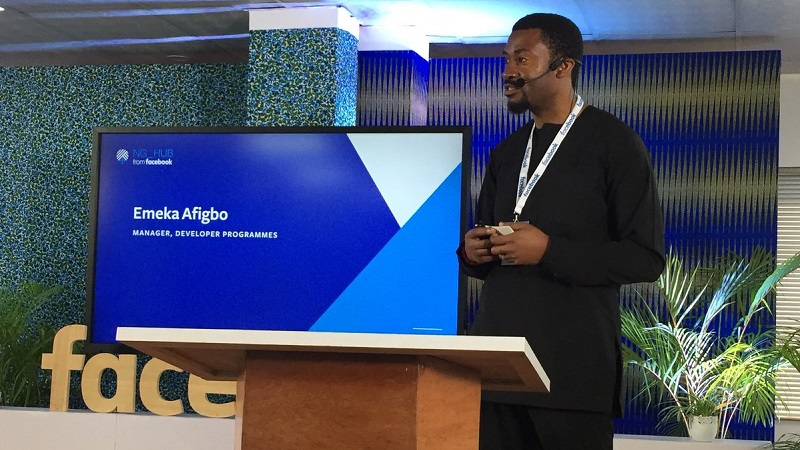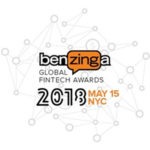Lenovo Southern Africa’s flagship event, Accelerate 2025, has just wrapped up in Johannesburg — and if the conversations are anything to go by, the…
‘Facebook $20k grants via NG_Hub to tackle Nigeria’s innovation gap’ [Q&A]

A lack of financial instruments is holding back innovation in Nigeria, and Facebook aims to address this by providing $20 000 grants to applicants to its new accelerator, a top Facebook official says.
Speaking to Ventureburn following the launch last week of Facebook’s NG_Hub, Emeka Afigbo, the social network’s head of developer programmes, says while Nigeria has no shortage of “smart people”, entrepreneurs, students and innovators battle to get funding to allow then to carry out innovative projects.
“That is why we are providing equity-free grants as part of the accelerator programme, to actually free people of the burden of having to rush to build things that they think in the short term they will make money from whereas in the purview of innovation, it is not really going too far.
“It is also the reason why we are including students from undergraduate to PhD (BSc students will be able to tap $5000 grants, whole MSc. students can get $10 000 grants and PhD students $15 000 grants – Ed),” he added.
“So that they can cool down and do their research. By doing this, we believe that we will inspire the investment community, universities and corporate entities to invest seriously in these areas of innovation,” he says.
Read more: Facebook to take on Google in Nigeria with new hub, $20 000 accelerator
In this interview Afigbo explains the rationale behind the hub, Facebook’s plans for Africa and assessment of the startup ecosystem among others.
Paul Adepoju: Why did Facebook set up a new hub in Lagos, when there are already several hubs already in the city?
Emeka Afigbo: We have a lot of things in mind to do in Nigeria and this was the best way to do it. It was difficult to find enough capacity.
We have one whole floor for an accelerator programme, we have a room there for a VR Lab that we are working with imisi 3D (a virtual reality lab – Ed) on, we have a space for content creators, and a space for events.
It is not just for tech, it’s a community space for training, community meetups. We have all kinds of events that we are holding there. From a capacity perspective, it makes sense to have a space that could cater for all that.
PA: Facebook announced it is partnering with the Co-Creation Hub for the NG_Hub. What is ccHub bringing to the table?
EA: We don’t see ourselves as being in the tech hub business. There are things we want to do and we want to work with tech hubs to do it.
We always have a policy of trying to partner with people with whose mission aligns (with ours) and who have capacity in the area where we want to partner with them.
CcHub is managing the space. They are in charge of the day-to-day management of the acceleration programme. They are the ones running most of the accelerator programme.
We are going to provide mentorship from the Facebook perspective. We are going to have Facebook experts who will be mentoring and working with these startups. We are also going to provide grants and the logistics around the incubation programme.
Also, in terms of local engagement, it is hubs like ccHub that would provide connection to all the corporate local partners. We are sticking to what we do best and we work with partners that do what they do best.
PA: Some hubs were announced as partners. How were they selected (see the list here)?
EA: There is a lot of hubs in Nigeria. No matter how many we try to partner with, I don’t think we will be able to take all of them but it is actually good that we have a lot of hubs that are emerging in Nigeria now.
When we partner with these guys, we look at people that have been doing stuff in the local ecosystem for a while, people who have that local connection and have shown some consistency in what they do. We also tried to seek some geographical coverage as well to ensure that we cover as much as region as possible.
For the students who will be part of these programmes, we don’t want them to travel very far to access these facilities. We partnered with ccHub for that reason.
PA: Why is Facebook working with hubs instead of with universities and educational institutions?
EA: It’s being considered in this approach. In the acceleration programme, students are a huge focus. We have grants for students at undergraduate and postgraduate levels.
The hubs we are working with already have strong ties with the universities around them. For example, Roar Hub is actually in the University of Nigeria Nsukka (based in Enugu) and they have a strong relationship with the university.
CcHub has strong ties with all the institutions around Yaba, Colab (Kaduna) has a strong relationship with ABU Zaria, likewise DI Hub in Kano with Bayero University Kano.
We are taking the first step and the hubs are engaging the universities through various approaches including the road trip they are embarking on starting from this week to different universities around the country.
PA: Why Nigeria for the hub, when Facebook is reluctant to hold its biggest African event here or sight its headquarters in Nigeria?
EA: We have been engaging across the continent including Ghana. There is a strong drive in Nigeria for economic empowerment and economic improvement. That’s why we started in Nigeria. Obviously we are going to be rolling out to other African countries.
We have relationships with other tech hubs across the region. For the startup incubation programme, we will figure out how to get startups and students from other African countries involved in subsequent ones.
PA: There are so many things going on in the NG_Hub. What is the thread that connects them together, and to Facebook? What is the major interest of Facebook?
EA: The general theme of all the things we are doing is all geared towards economic empowerment. At Facebook, we believe that here in Africa we should also be playing our roles in pushing the boundaries of these technologies.
That is why we decided to focus an acceleration programme on big tech.
We are involved in helping businesses to grow. We are also helping, through our bootcamps, to help individuals developing skills to build a career in the space.
Facebook is looking to make a key investment in the ecosystem in Nigeria because we believe that if the ecosystem grows, it is good for everybody including Facebook — because a rising tide lifts all boats. This is why we are investing in the community and the ecosystem because if it grows, everyone benefits including us.
PA: How can startups be part of the accelerator programme?
EA: All they need to do is to apply at cchubnigeria.com/fbstart (or visit here). In partnership with ccHub, we are drumming up awareness around it and to help people on how to articulate their ideas and things they are working on so that the judges can understand.
PA: Which sectors are the current target of the accelerator programme?
EA: It is not focused on any specific sector. Rather, it is focused on the technology and how it is applied. The general theme is “apply no matter what you are doing”. Crazy ideas are allowed and encouraged.
PA: How will Facebook assess the success or failure of the NG_Hub?
EA: We will be focusing on value. We will be reviewing what has come out of it — the number of people we’ve trained, what the startups have been able to build, and how many people have been employed.
PA: For how long do you think the hub is going to be in Nigeria?
EA: It is going to be there as long as it is useful. The way we engage evolves with the ecosystem.
This current investment was made based on our current assessment of the ecosystem and what we needed to do to make some impact in specific areas. This is an assessment we will continue to make. And as things evolve, our strategies will evolve alongside.
PA: What is your assessment of the quality of innovation coming out Nigeria?
EA: One thing we will agree on is that there are very smart people here in Nigeria. We have smart, motivated and very innovative people in Nigeria.
With the internet, the same information that is available to someone in MIT is available to somebody in Kano and Enugu. We have those tools and the people. So, what is the missing link?
One of the missing links is that if you’re interested in doing research on how artificial intelligence can be innovatively used to solve local and global challenges, it is going to be very hard to get any financial investments to back you up.
There is this perception that innovations here should put food on the table and the developer should be earning money. They will tell you the ecosystem is not ready for that.
That is why we are providing equity-free grants as part of the accelerator programme, to actually free people of the burden of having to rush to build things that they think in the short term they will make money from whereas in the purview of innovation, it is not really going too far. It is also the reason why we are including students from undergraduate to PhD.
So that they can cool down and do their research. By doing this, we believe that we will inspire the investment community, universities and corporate entities to invest seriously in these areas of innovation.
Startups that want to participate in Facebook’s accelerator programme have until 22 June to apply (one can apply here).
Featured image: Dignify Bytes via Twitter


